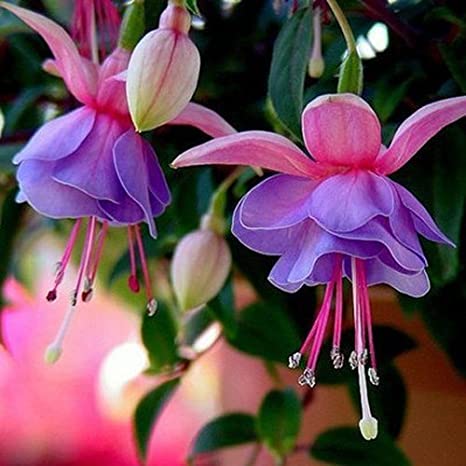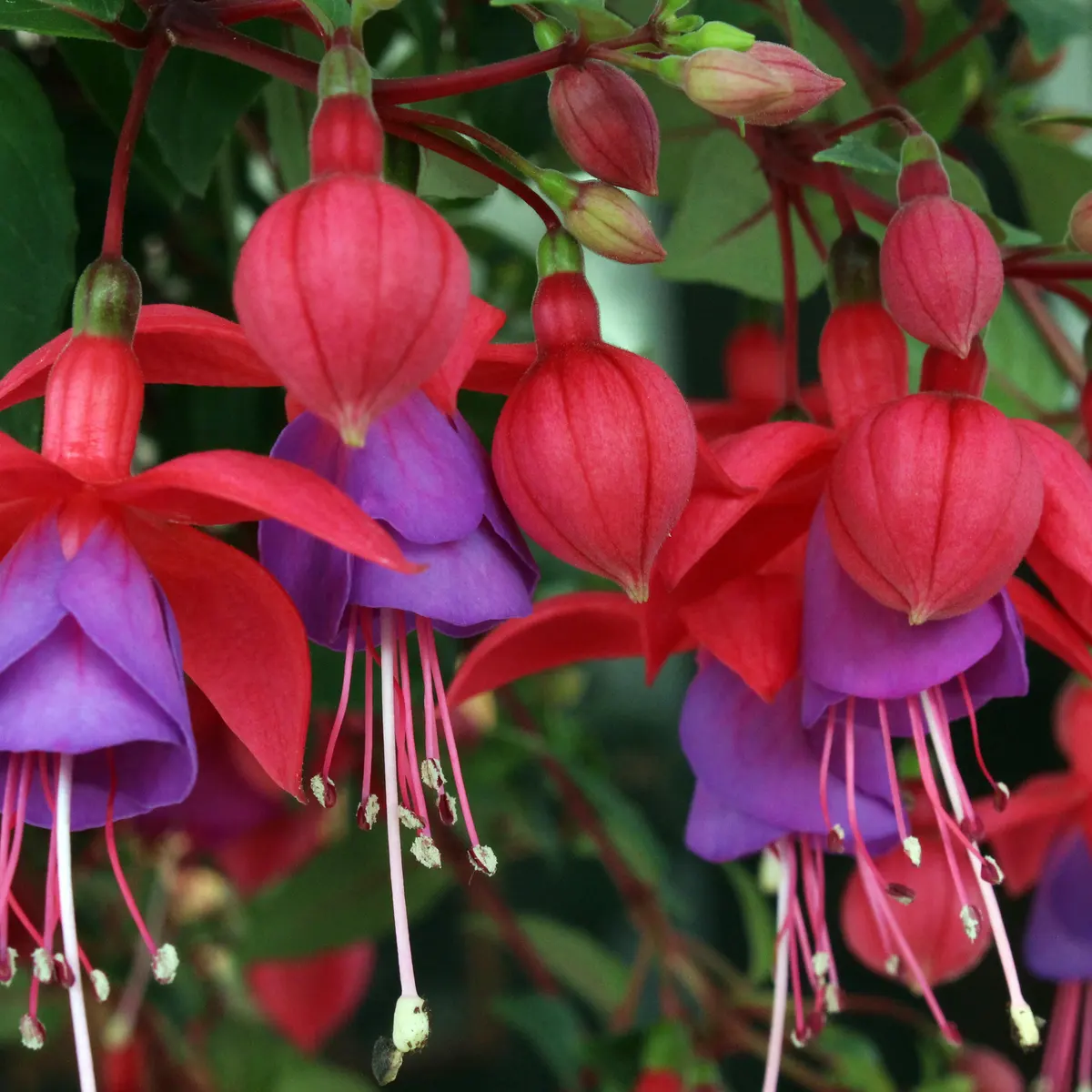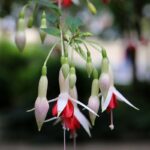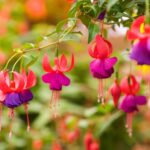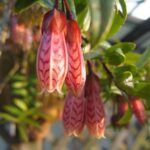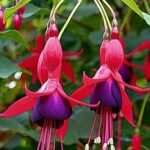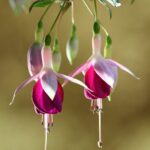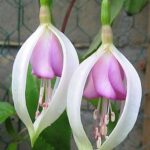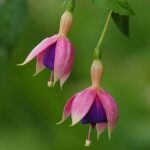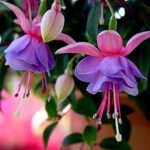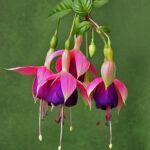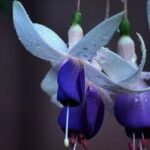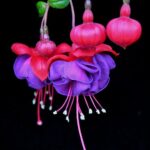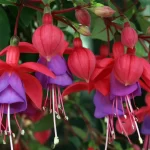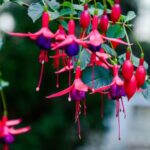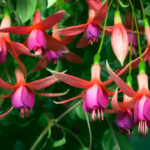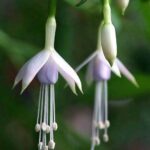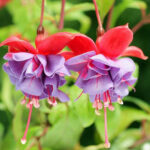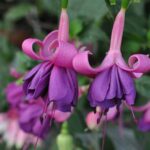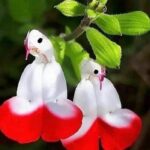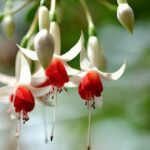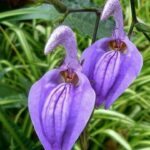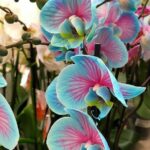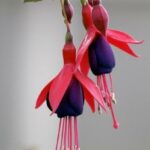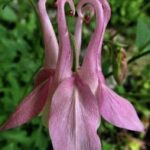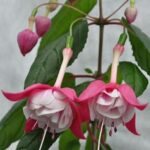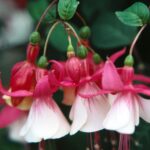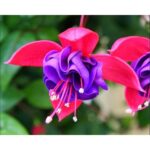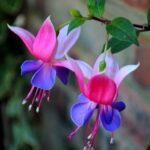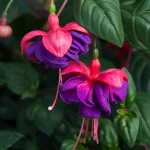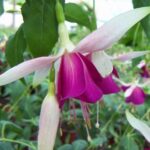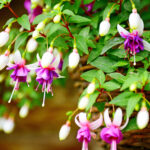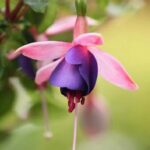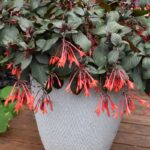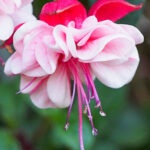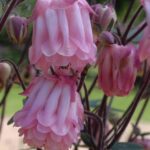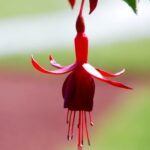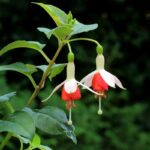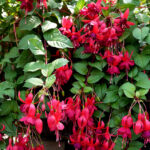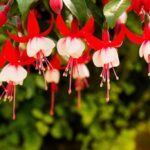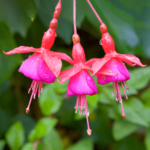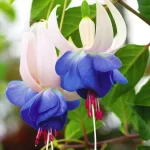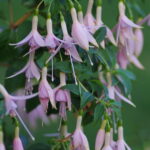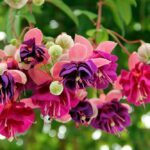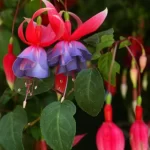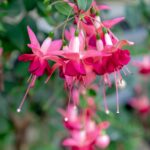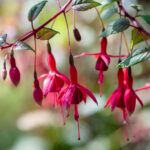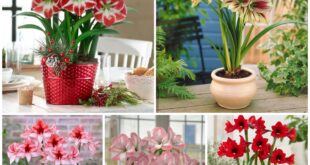Fuchsias are one of the mainstays of the summer garden. They produce masses of delightful pendulous, bell-like flowers for months from early June until the first severe frosts of autumn.
Fuchsias make colorful displays in beds and borders, hanging baskets and all types of containers. Hardy fuchsias can even be used to make informal flowering hedges. So popular are they that fuchsias have their own national society, The British Fuchsia Society, and numerous local clubs and societies.
How to grow fuchsias
cultivation
Fuchsias grow perfectly in full sun or partial shade with protection from cold winds, although they will appreciate some shade during the hottest part of the day in very hot summers. To bloom profusely, they need fertile, moist but well-drained soil.
If you are growing in containers, make sure you are using a good multipurpose compost or one with added John Innes such as Levington® Multipurpose Compost with John Innes added
Fuchsia varieties
There are literally hundreds of Fuchsia varieties in a plethora of different colors and color combinations. Most produce relatively small buds, while the ‘Turbo’ strains produce quite large buds.
They range from small, simple, single-leaved varieties to those that are multi-leaved and large enough to sit in the palm of your hand.
Fuchsias are divided into three large groups:
Bush fuchsias grow upright into bushy plants.
Hanging or basket fuchsias produce long, trailing stems, making them perfect for hanging baskets and adorning the edges of containers.
Both bush and hanging fuchsias are considered semi-hardy perennials. This means they will not survive temperatures below 4-5 °C (40-41 °F) and will need to overwinter in frost-free conditions if you want to keep them for years to come.
Hardy fuchsias are bushy varieties that are generally considered frost hardy and can remain in the garden all year round. The lines between hardy and non-hardy are a bit blurred, and varieties that are hardy in mild climates like Cornwall may not be hardy in more exposed, colder regions of the country.
Some fuchsias also produce variegated reddish or purple leaves.
 careyfashion.com Carey Fashion
careyfashion.com Carey Fashion
